Today’s era is all about deep personalization. It is built on tons of customer data. Rich new streams of data are now making it possible to tackle complex challenges in industries such as health care, environmental protection, and urban planning. There is also a massive amount of silent data being collected about us through sensors and the Internet of Things revolution. People say data is the new oil, but really in today’s environment, data is the new uranium. It has massive power, but it can be very dangerous because it can be used in ways we don't intend.
While estimates vary, it is expected that 15 to 20 billion devices are already wirelessly connected to the internet. Looking ahead, the majority of data will be collected passively through machine-to-machine transactions. Although still projected to proliferate, the overall proportion of data actively generated by individuals will decline. So, a lot of data about us as customers will be passively collected without us even knowing about it.
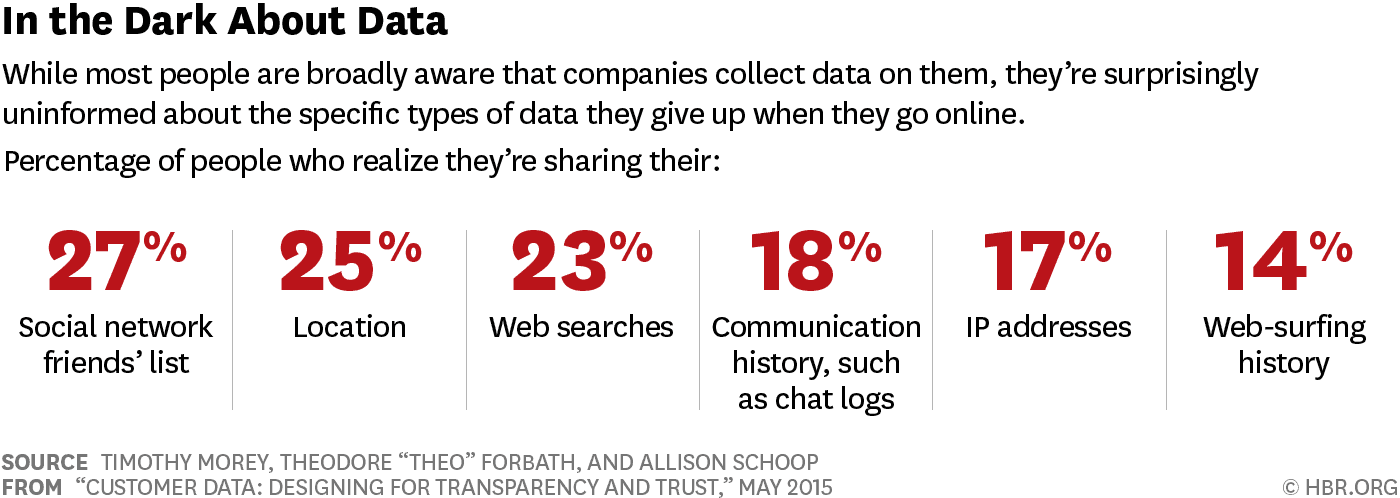
Brands have to pause and ask themselves whether their data strategy is increasing brand trust or diminishing it. If the future is predicated on brands having more insight & information then it is critical for them to increase Brand trust.
Responsible customer interaction will lead to better trust. Consumers will trust brands more only if brands are more transparent about how they collect customer information. And unless brands give consumers control over this information, there will be suspicion & a lack of brand trust.
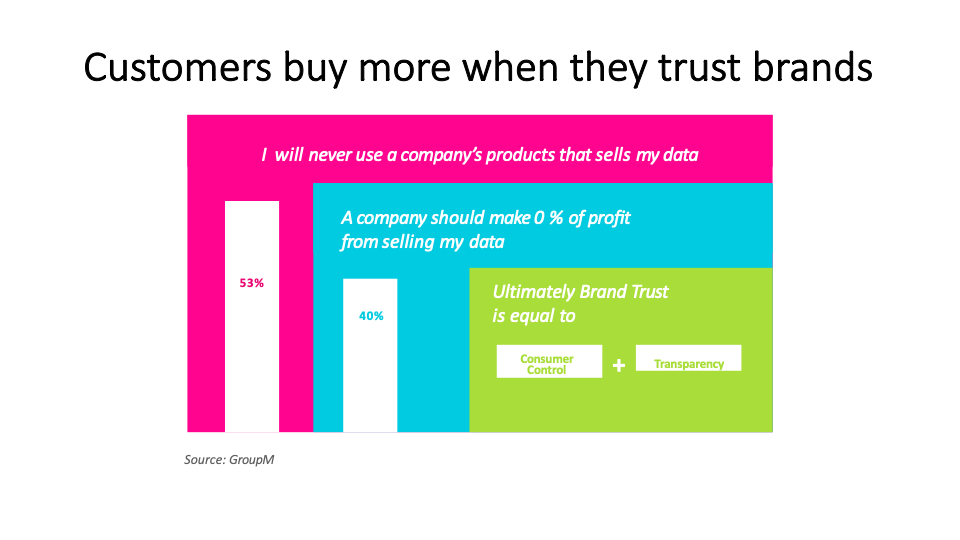
Also, increasingly consumers are beginning to increase their trust in brands that have a positive contribution to society. In fact, millennials seem to believe in this even more & rightly so as their future is at even greater risk.
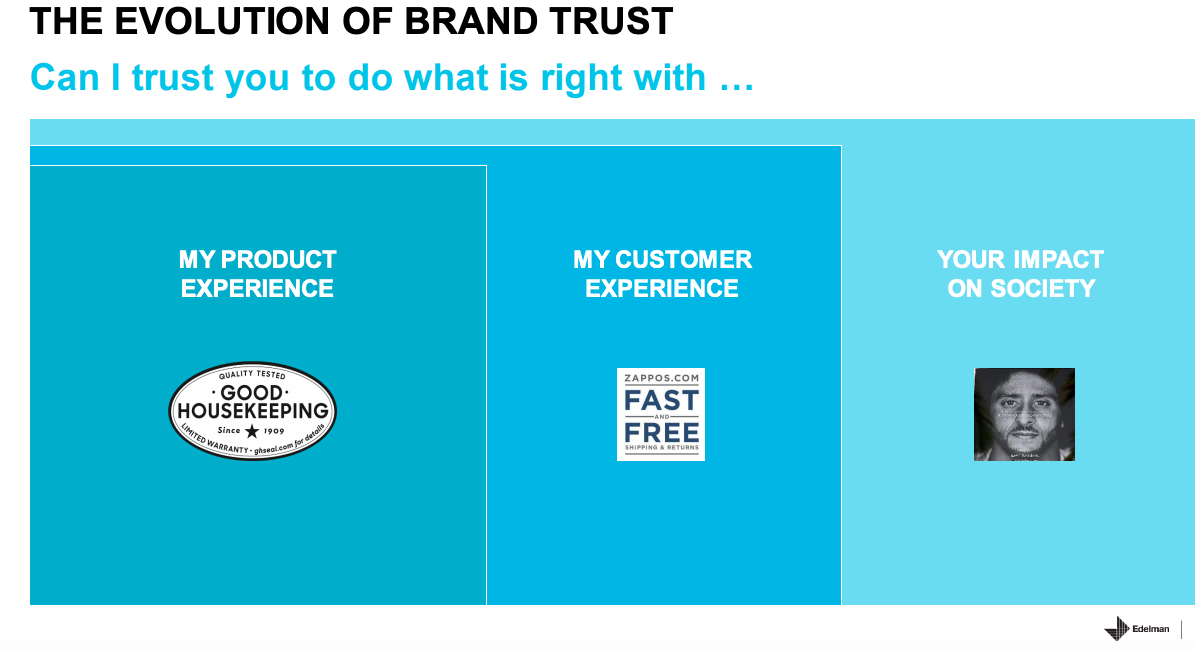
Brands are today facing a paradox-consumers want more personalization but they have clear rules about how their trust should be maintained & companies need to respect that. As marketers, we often end up tracking our consumers too closely and intrude in their lives without truly taking the time to get to know them or to build up trust. Google’s chief economist, Hal Varian, states that collecting data does not infinitely lead to more value. Instead, returns of scale on data will eventually decrease as the information will stop being relevant to what you are trying to achieve. Data is the source of how you can provide “help” to your consumers, but if well thought through, you don’t need reams of data & selected pieces of information can make a disproportionate impact. Data collection and use is a critical component of personalization, but that data must be collected efficiently, stored responsibly, and used appropriately. These risks are a good incentive to rightsize data collection efforts.
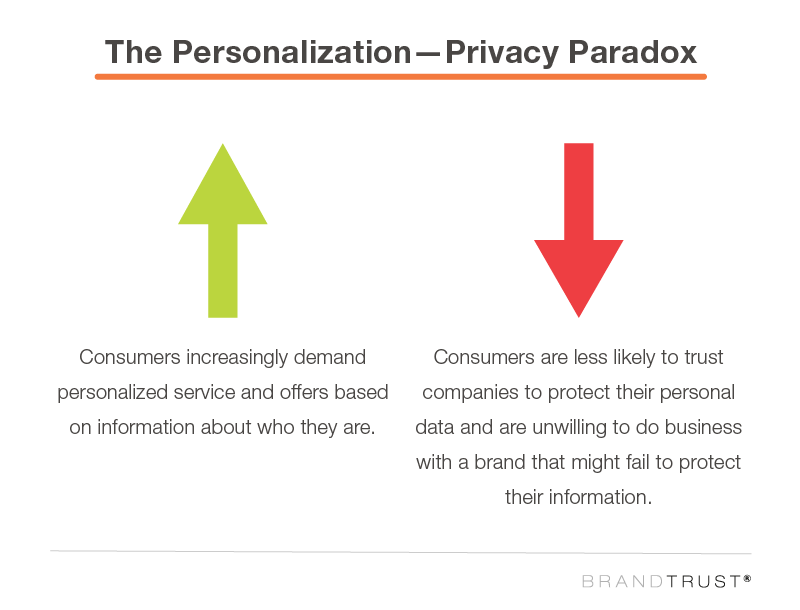
Most brands believe that as long as they are providing sufficient value to the consumer, it is ok to ask for their data. But brands need to go back and ask if consumers feel the value exchange is fair. In fact, brands need to ask if they have a coherent data strategy in place.
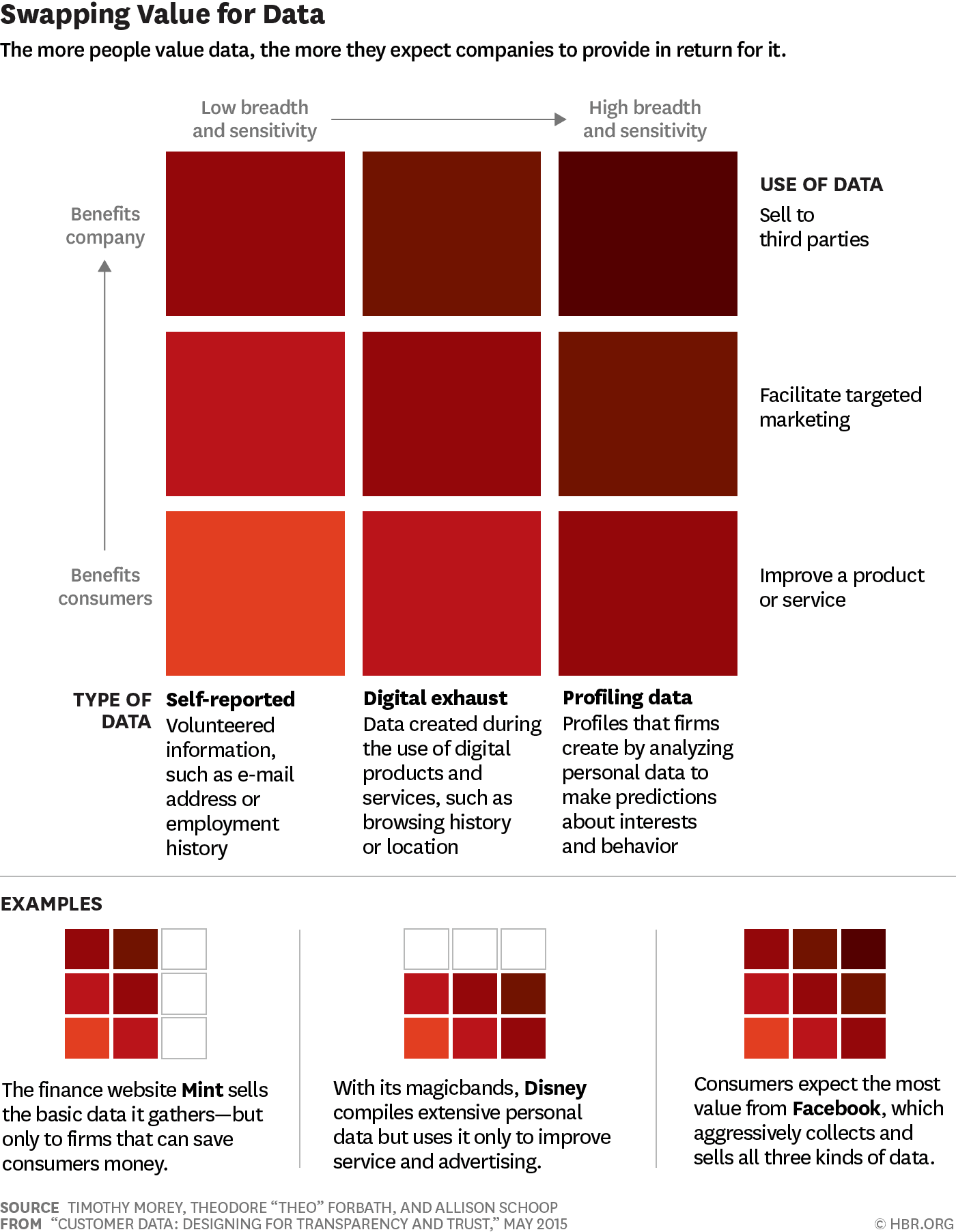
Consumers are becoming aware and, therefore, demanding. Privacy and Data Protection Laws are getting stringent. India is close to passing its own law. The cacophony around the protection of privacy as a human right amidst the data explosion has escalated. So Adtech and Martech, as we know it today, are set to change with fundamental models being questioned and disrupted.
HBR has an interesting comment: “A firm that is considered untrustworthy will find it difficult or impossible to collect certain types of data, regardless of the value offered in exchange. Highly trusted firms, on the other hand, may be able to collect it simply by asking, because customers are satisfied with past benefits received and confident the company will guard their data”
Companies often struggle to see privacy issues at a strategic level.
There is a temptation to see it as a legal issue that can be managed technically. But consumer perception of & need for privacy is completely changing the nature of the game. It is creating a need for businesses to engage in more Responsible Marketing.
When companies embrace responsible marketing, it is particularly important to bring in these concepts for senior leaders to absorb. Any change of this nature takes time to be assimilated & companies need to familiarize leadership across levels about customer privacy. Customers buy more when they trust brands.
This needs to trigger a conversation at the seniormost level amongst the CIO, CMO & the CEO. It needs a conversation around why data is a strategic asset and how might you architect a Data defense & data offense strategy?
"This is an interesting twist. In the age of customer-centricity, we’re supposed to be obsessively, exclusively focused on the consumer. But if trust is the fuel for successful Customer experience, then increasing its power means concentrating on ourselves, on what makes us trustworthy – and on communicating that successfully to consumers": Tim Walters of The Content Advisory.



